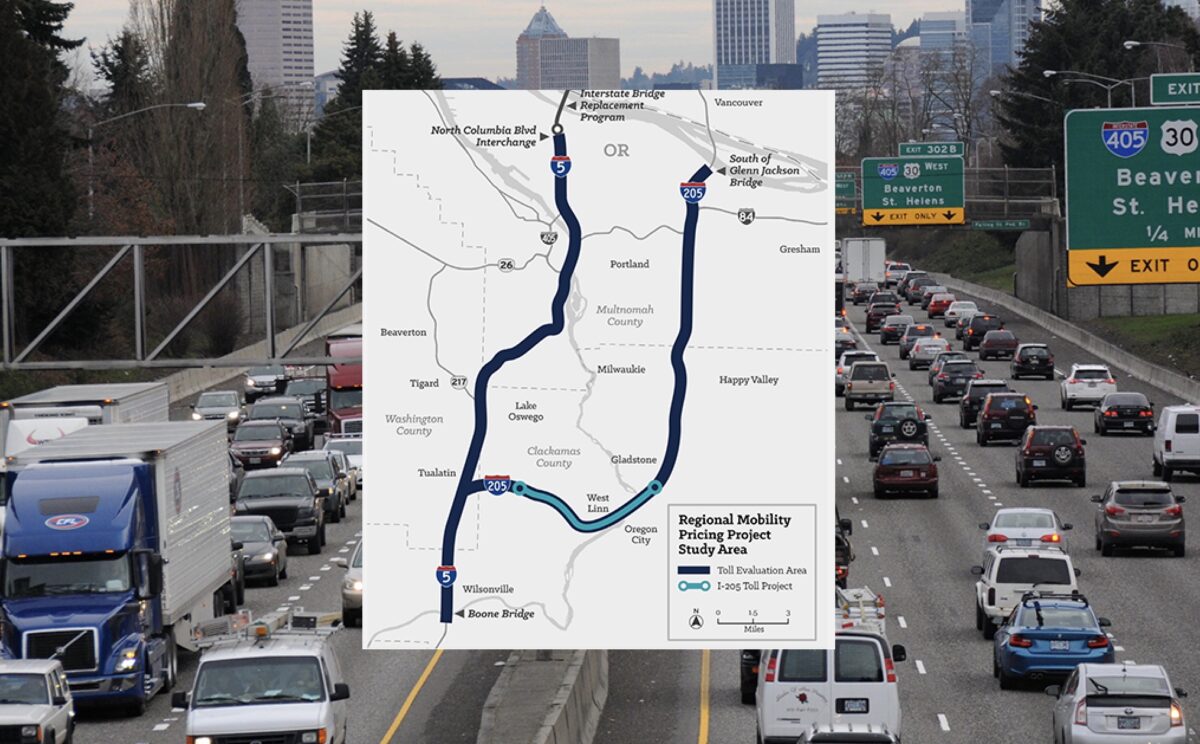
The Oregon Department of Transportation is moving full steam ahead with its effort to expand Portland area freeways.
As ODOT tries to iron out details on their Regional Mobility Pricing Project, which aims to help pay for the expansions via tolls, they’ve opened a survey for the public to share input. Not only is this a good opportunity to tell ODOT what you think, it may also serve as a peek behind the curtain to see what ODOT is thinking about this important issue.
ODOT’s case that these freeway expansions will actually work to clear up traffic bottlenecks without inducing demand and increasing greenhouse gas emissions relies in large part on one key tool: congestion pricing, a.k.a. tolls.
Advertisement

According to ODOT, their congestion pricing rates will vary by time of day, location, and vehicle type in order to help traffic flow smoothly on I-5 and I-205. Evident from the survey is that the agency is expecting pushback on the basis of equity and are thus mulling over low-income discounts or credits, which ODOT seems to be considering implementing at two separate income levels: for individuals making less than $27,000 annually and families of four making less than $55,500 annually (which they say would mean all drivers would experience “improved travel times and reliability on I-5 and I-205”) or for individuals making less than $40,000 and families of four making less than $80,000 annually – a barrier so low, travel time and reliability admittedly might not improve at all.
The survey also asks what people would want to see congestion pricing revenue directed toward, with ODOT saying it “seeks to meet equity goals for toll projects in Oregon by addressing transportation-related barriers and providing benefits for historically excluded and underserved communities.” According to the survey, some of the areas this revenue may target include “local and regional air quality improvement and reductions in greenhouse gases that help reduce climate change effects,” “enhanced transit, walking, and rolling choices to reduce congestion” and “investments in regional priority congestion relief projects [a.k.a. freeway expansions].”
A concern that revenue from ODOT’s pricing program would go straight into more freeway expansion projects is part of what’s driven some opposition to them. Local economist and No More Freeways co-founder Joe Cortright recently pointed out it’s likely simply adding road use fees would solve much of the traffic problems ODOT claims the multi-billion dollar freeway expansions are designed to fix, and should be spent on something else.
According to the survey, ODOT is considering funding “community identified priorities, such as improved sidewalks or transit facilities near the tolled highways” with toll revenue, but this would likely mean an increased toll rate for all road users.
If all goes according to plan, ODOT says the earliest tolling would begin is late 2024.
Learn more on their website and be sure to take the survey if you want your voice to be heard. It’s open through May 16th.

